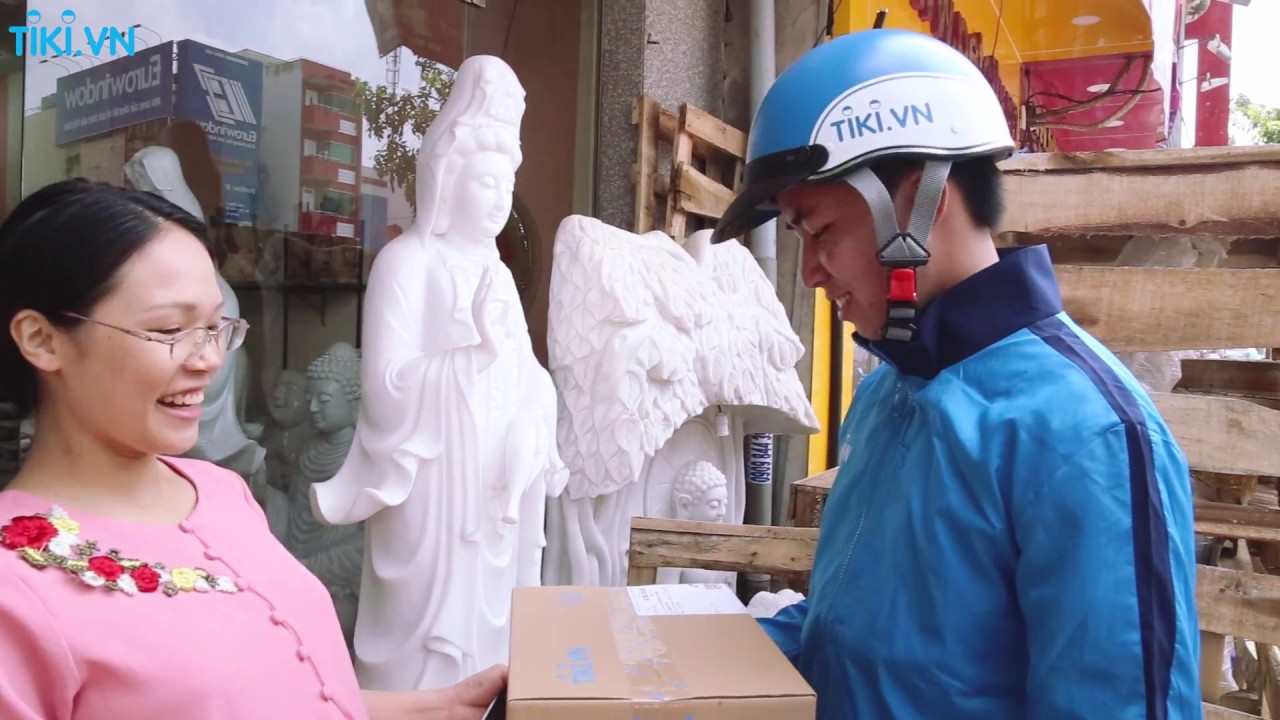Tiki, an online shopping website that hopes to become Vietnam's Amazon, has reported consistent annual losses in the last two years, notwithstanding financing by big investors.
The e-commerce company accumulated more than VND320 billion (US$14.08 million) in losses in 2017 and 2016, data from the 2017 annual report of VNG Corp., one of Tiki’s largest shareholders, shows.
According to the report, the website suffered a deficit of more than VND282 billion ($12.41 million) in fiscal 2017 alone, nearly triple its total registered capital and seven times the loss of VND40 billion ($1.67 million) in 2016.
Tiki was founded in 2010 in Ho Chi Minh City as a start-up selling books online, but it is now trading a great variety of stocks from fashion to electronics products.
The eight-year-old business started picking a series A funding from the Japanese investment fund CyberAgent Ventures in 2012, before securing a series B round of funding in a deal with Sumitomo, another Japanese giant.
Following that, Tiki tied up with Vietnamese entertainment and social media firm VNG Corp. to be financed with $17 million in exchange for a 38 percent stake in May 2016.
VNG accepted more than VND104,000 per share of Tiki as it assessed the start-up was worth a price of VND1 trillion ($45 million) at that time.
However, the value of VNG's investment has been increasingly eroded only after two years.
The firm’s 2017 financial report blamed its losses of more than VND122 billion ($5.37 million) during the year, compared with approximately VND90 billion ($3.96 million) in 2016, on the deficits from the capital injection into Tiki.
Accordingly, the losses assigned to VNG from the 38-percent-stake ownership of Tiki in 2017 is VND125.3 billion ($5.51 million), up 34 percent over the previous year.
The value of VNG’s investment in this online retailer, as a result, remained only VND165.7 billion ($7.29 million) by the end of the year, down about VND219 billion ($9.64 million) from the initial investment value.
In January 2018, China’s second-biggest e-commerce firm JD.com put a reported $44 million investment in Tiki before becoming one of its largest shareholders alongside VNG.
At present, the foreign ownership ratio of Tiki has topped 40 percent, with JD and Sumitomo being the two leading names with 22.1 percent and 7.32 percent respectively.
Losses make it look like the leading online book retailer is struggling when it is not.
The situation of Tiki partly reflects the overview of the burgeoning electronic trading in Vietnam as only market share, sales, purchase value per customer and return rates count when it comes to the valuation of a business in such a double-digit growth market.
Vietnam’s ecommerce growth rate for 2017 was over 25 percent and is likely to remain stable or even become higher between 2018 and 2020, according to an e-business index report formulated by the Vietnam E-commerce Association (VECOM), a non-profit founded in 2007.
And Statista's report estimated the total e-commerce revenue in Vietnam would hit $4 billion by 2020.
Tiki tops the annual gross merchandise value, an index by which e-commerce websites measure total value of merchandise sold annually in revenue, at about $240 million and distributes merchandise across the Southeast Asian country, according to the Financial Times.
Like us on Facebook or follow us on Twitter to get the latest news about Vietnam!



















































